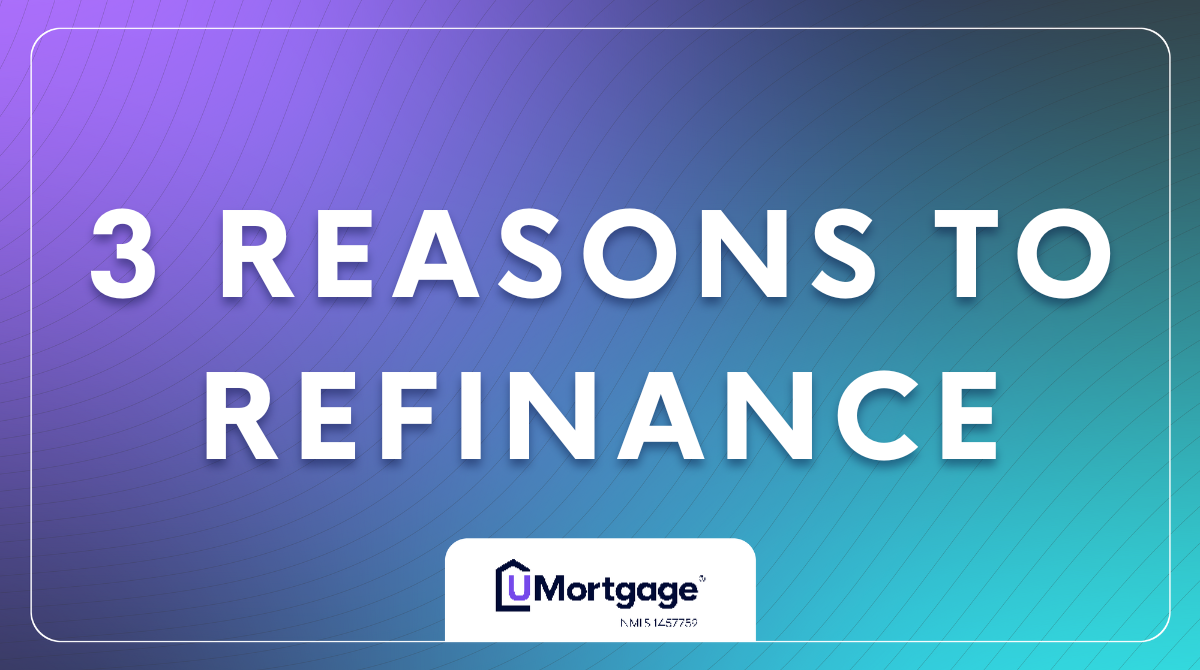3 Reasons to Refinance Your Home Loan
Published: August 13, 2024

3 Reasons to Refinance Your Home Loan
Refinancing your mortgage can be a strategic financial move that offers several benefits to homeowners. Whether you're looking to save money, access the equity you've built, or switch mortgage types for more stability, refinancing can be the key to achieving your financial goals.
By securing a lower interest rate, you can reduce your monthly payments and save thousands over the life of your loan. Additionally, tapping into your home's equity through refinancing can provide the funds needed for home improvements, debt consolidation, or investment opportunities.
Finally, switching from an adjustable-rate mortgage to a fixed-rate mortgage can offer peace of mind with stable monthly payments. Let's explore these three compelling reasons to consider refinancing your mortgage in more detail.
Lower Your Monthly Payments
One of the most appealing reasons to refinance is the potential to lower your monthly mortgage payments. If you purchased your home in the last few years, there's a chance that interest rates have decreased since then.
By refinancing at a lower rate, you can significantly reduce your monthly payment, freeing up cash for other expenses or savings. This reduction not only makes your monthly budget more manageable but also allows you to allocate funds towards other financial goals, such as retirement savings, education funds, or emergency reserves.
Over the long term, the savings from a lower interest rate can add up to thousands of dollars, making refinancing a smart financial decision.
Access Your Home's Equity
Your home is not just a place to live; it's also a valuable financial asset. Over time, as you pay down your mortgage and property values increase, you build equity in your home. Refinancing offers a way to tap into this equity, providing you with a lump sum of cash that can be used for various purposes.
Whether you're planning a major home renovation, looking to consolidate high-interest debt, or considering an investment in another property, a cash-out refinance can provide the necessary funds. This approach can be more cost-effective than other borrowing options, as mortgage interest rates are typically lower than those for personal loans or credit cards.
Switch Mortgage Types
When interest rates were high, many borrowers opted for Adjustable-Rate Mortgages (ARMs) to take advantage of lower initial rates. However, as the introductory period ends, these rates can increase, leading to higher monthly payments. Refinancing provides an opportunity to switch from an ARM to a fixed-rate mortgage, offering stability and predictability.
With a fixed-rate mortgage, your interest rate remains constant throughout the life of the loan, protecting you from potential rate hikes and ensuring consistent monthly payments. This stability can be especially valuable in uncertain economic times, allowing you to plan your finances with confidence and avoid unexpected increases in your housing costs.
If you're considering refinancing, now is an excellent time to explore your options. Even if you're not ready to refinance immediately, connecting with a Loan Originator can help you understand the potential benefits and determine the best strategy for your financial situation.
